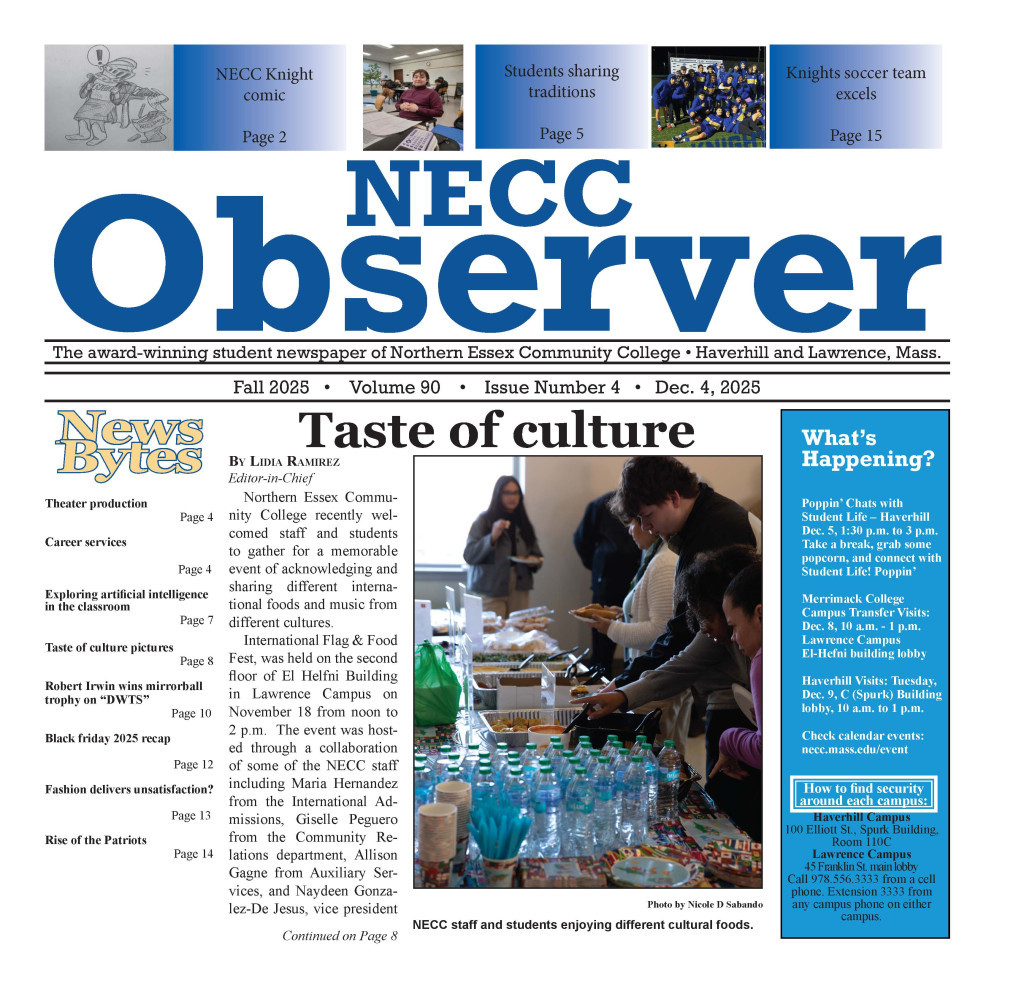In a time where the country is being plagued by crucial problems – from the ongoing fight for racial equality to the ups and downs of the COVID-19 pandemic – many people are staying glued to their television screens in anticipation for what is going to happen next.
Many students at Northern Essex Community College have mixed feelings about the ways in which local television news is impacting their emotions as well as their day-to-day routines.
Brendan Maye is not an avid viewer of local news, but he tries to stay updated with local coverage as much as he can. Maye feels that most of the news he hears about is good, but also helpful in updating viewers about what is happening around the world.
“I connect with good stories about COVID-19 because I feel we are finally going in the right direction,” Maye says.
Although Maye is not impacted emotionally by the stories he hears about, he has strategies in place for when he needs to escape sad news coverage.
“I try to think positive thoughts and hope for good things to happen,” Maye explains.
Chelsea Daigle enjoys staying updated with news by reading articles. She has recently tried to incorporate local television news into her daily routine in efforts to stay informed. Daigle primarily focuses on stories regarding vaccine distribution as well as local stories about individuals who are making a difference in their community.
Daigle feels that most local news is very negative but says that capturing negative stories is not always a bad thing.
“To bring attention to people who are struggling is very important. Just maybe someone may read it, want to help out, and do something about it.” she says.
However, at the same time, Daigle argues that being completely immersed in negative news is not a good thing.
“Our brain has a psychological aspect where we instantly hang on to bad moments instead of the positive ones.” She continues, “The most awful part about it is hearing the negative things happening all around the country and waiting for it to happen to our communities.”
To stay optimistic, Daigle says that she spends her free time involved within her community making connections with other individuals and various organizations including schools where she can interact with students, something she greatly enjoys.
“Having a social outlet is very important to take your minds off things,” Daigle concludes.
If you or someone you know in the NECC community is struggling with mental or emotional stressors related to the pandemic, NECC can help.
NECC community members may direct any issues of note to reportconcerns@necc.mass.edu.
If you are a student with a question specifically geared towards academics or student life, contact expectmore@necc.mass.edu.
Students are encouraged to contact our NECC community resources coordinator, Janel D’Agata-Lynch, communityresources@necc.mass.edu to be connected to resources available in our community.
For questions or to set up a counseling appointment call 978-556-3730, or email counseling@necc.mass.edu.

